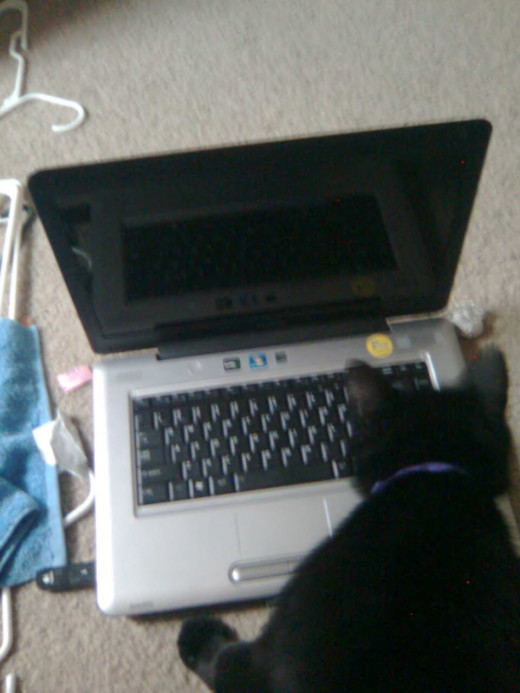Online Critique Forums: A User’s Guide
Get turned on to writing help.

Over the past 10 years, I’ve had the privilege of participating in a number of online critique forums. The process began when a library patron urged me to post some of my poetry at an online forum in which he was active. The fine group of poets at Desert Moon Review embraced me and guided me. Within a few months, I had the privilege of serving as a moderator for the forum one day each week. Although this particular forum has been defunct for a few years, many of the poets and editors I met at DMR remain close friends, and some have become colleagues in my freelance writing adventure.
This year, I have begun to expand my writing and am venturing once again into the realm of fiction. In the process of finding inspiration to keep my muse well-fed, I found a few critique groups to join. Quickly it became clear that not everyone knows how to play well with others. While a couple of these groups provide wonderful feedback with excellent banter, most of the others don’t provide a safe environment for the quality workshopping of anything.
Although most writers understand that everyone needs an editor, it can be difficult to expose your work to critique. If you’re interested in joining a critique forum, start by looking at the person in the mirror. When you come into a critique forum with the right attitude, you’ll be more likely to get what you want and need from the group. Consider the following tips:
What's Your Experience?
Do you participate in online critique forums?
Remember Why You Are Participating
All writers are to some degree divas who want others to worship our work. We may as well accept it and move on. When we participate in online critique forums, we are seeking approval as well as ideas for improvement. When you keep this in mind, it will help you respond politely to others, even if you think their work is just so much garbage. It will also help you take negative criticism gracefully.
While participating in a functioning critique forum, you will receive feedback you don’t like. Most of the time, you won’t like it simply because someone is telling you that something is wrong with your baby, your precious creation. It’s okay to feel this way, but don’t respond immediately to these critiques. Give your emotions time to simmer down. Then take a second look at what you wrote. Could it be that your critic is right? Remember, the purpose of your involvement on a critique forum is to improve your writing. Like all growth, this process will be painful at times.
Be Sure to Give as Well as Take Writing Help
Most online critique forums have guidelines that include a requirement for commenting on a certain number of other works each time you post your own work for critique. Many forums also have a maximum number of works that can be published daily or weekly by an individual member. Of course, participation requires that you follow those rules, but you may wish to go a step farther in order to get the most out of your experience in a critique forum.
Other writers are more likely to give you feedback on your work when they receive substantive feedback from you. This means that when you comment on other writers’ work you say more than, "I liked this poem." or "I didn't like your story." Carefully considered feedback needs to be specific. Indicate what you like and what you don’t like in the piece. Rather than spouting well-known platitudes such as “Your story needs to show rather than tell.” point out ways in which the author could better show the story to the reader. When you like a particular aspect of another writer’s work, be specific about that as well. Positive criticism can be just as effective as negative criticism in helping writers improve their work.

More Tools for Improving Your Writing
Learning and Responding to Criticism of Your Work
Avoid Knee-Jerk Responses
As I mentioned previously, critique doesn’t always feel good. You won’t necessarily like the improvements your critics recommend. First, don’t take these comments personally. They are seldom meant that way. Second, take some time to consider recommendations before rejecting them.
Writing, like every form of art, is subjective. However, there are certain rules and guidelines that help writers tell their stories. If another writer reminds you of a rule that you have neglected, take the time to consider how you can improve by incorporating that instruction. Responses such as, “I just write what I feel.” or “I don’t follow that rule.” will only discourage others from commenting on your work in the future. Also, by dismissing such helpful advice, you are robbing yourself of an opportunity to grow.
If a comment strikes you as rude or just plain wrong, don’t respond right away. Take time to think about it first.
Always Be Gracious
Regardless of what another forum member says about your work, remember to be gracious. That person has taken the time to give you feedback. Whether or not you like what they say, respect this fact. Most participants in online critique forums are there to help others as well as to improve their own writing.
Usually, you will find thoughtful, specific feedback to be helpful. Whether or not you take the advice on the piece in question, the comment will remain in your memory as you grow and develop as a writer. When you find a comment helpful, respond by letting the commenter know. If, after considering a comment for a while, you still can’t find anything in it that is helpful, simply acknowledge it with a reply such as “Thanks for commenting.”
Tips for Success in Online Critique Forums
- Give as well as take.
- Respect others.
- Don't take criticism personally.
- Avoid knee-jerk responses.
- Be specific when giving feedback.
Pointers for Commenting on Others’ Work
Bookend a Negative Critique with Positive Comments
Even the worst piece of writing ever posted on a critique forum has something nice that someone can say about it. Remember, other forum members have feelings just like you do. It helps to remember your Mom’s advice, “If you can’t say something nice, don’t say anything at all.” This doesn’t mean that you have to lie. It means you need to find something positive to say.
For example, if a poem you are critiquing falls flat in most ways, resist the urge to start spouting ideas for improvement immediately. The poet sees something worth keeping in the poem, and you will see something good too with a careful reading. You might open your comment by saying something like, “You’ve done some hard work by taking on this theme in your poem.” Once you’ve acknowledged the hard work the poet has done, you can then make recommendations for improvement.
Likewise, end every criticism with a positive. For example, you might say, “I enjoyed your topic.” or “I look forward to reading your next revision.” If the piece has particularly strong features, this would be a good place to point out those features.
Read Other Members’ Comments
Especially when you are new to a critique forum, it’s important to do some lurking. Read comments on a number of threads in order to get a feel for the group. What kind of critique is common here? How do the members take that critique? While every critique forum exists for the purpose of helping one another improve in our craft, each forum has its own nuances and unwritten code of ethics. Some critique forums encourage detailed, specific recommendations. Other forums encourage comments, but the members prefer open-ended recommendations. In some forums, you will find that the type of critique given depends on the person receiving it. The more you read and observe, the more you’ll learn about the environment and how to give critiques that are both appropriate and helpful.
Never Attack Another Writer
When participating in an online critique forum, be careful never to attack the person behind the work. It is never okay to call another forum member ignorant or to insult the religious views of another person. Your purpose in the forum is to give feedback about the creative work another has presented. Stick to commenting about the work itself. If a piece strikes you as cliché, mention that you’d like to see fresher language used on this topic. Don’t call the writer unimaginative.
Respond to the Work Itself
In addition to refraining from attacking other forum members, take care that you give feedback as objectively as possible, especially when a piece of writing presents a controversial point of view. Your job is not to assess that point of view. You are not the priest, rabbi or ethics professor here. Instead, assess the way in which the point of view is presented.
This may be the most difficult part of participating in an online forum. Beginners might benefit from critiquing controversial works that present their own points of view. Try pretending that you don’t agree with this viewpoint, and ask yourself if the voice, language and logic are strong enough to make you reconsider.
Some hot-button topics carry too much emotion for a writer to comment on appropriately. In this case, move to the next post. You don’t have to comment on everyone’s writing. In the event that another member’s work includes violent hate language or explicit sexual descriptions that you find offensive, privately alert the forum moderator to the problem. Most critique forums have rules in place for handling these issues.

Places You Can Go to Improve Your Writing
Online critique forums are invaluable tools for writers of every skill level. Even if you’ve been burnt in the past during a foray into such forums, consider participating once again. It isn’t easy to put your ego aside and join in a conversation about how to improve your art, but the pain is worth it when you begin to see your creative work improve.
Several incredible forums exist. Poets can benefit greatly by participating in Wild Poetry Forum. Writers of short fiction are sure to enjoy the weekly challenges at the Writer’s Hangout, a LinkedIn group. Flash fiction writers might enjoy the process of playing along with Friday Fictioneers, hosted by Rochelle Wisoff-Fields through her WordPress blog. Hubbers, of course, can participate in the critique forum here on HubPages.










